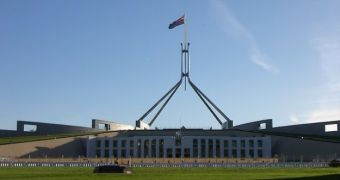Big businesses and conservative politicians have again launched a campaign seeking to deter the Australian government from sticking to its 2010 deadline for the introduction of the carbon trading system. They say that the goal is unrealistic in the new economic downturn, and that the authorities should consider 2012 as the year in which the program should be implemented. Some of the companies threaten that they would move their operations offshore, if the policy was maintained.
Australia has one of the largest amounts of carbon emissions per capita, even though it's less populous than countries such as the US and China. The government has been pressured for a long time by the social groups to start implementing reforms as far as fossil fuels and renewable energy go. Australians have even taken to the streets in the thousands, demanding that such action be taken. However, it would appear that private interests are expected to dominate over the will of the people.
“The 2010 timetable has also now become unrealistic because of the impacts of the global financial crisis on business confidence, cash flows and the availability of credit,” Heather Ridout, the chief executive of the Australian Industry Group, an association made up of the leading construction and engineering firms in the country, says. The real blow to the government is the fact that Ridout's organization supported carbon trading schemes in the past, but now finds itself unable to do so on account of the economic turmoil.
The plan has been to start the introduction of carbon permits in 2010, so that, by 2020, the country could drop its greenhouse gas emissions by 5 percent from the 2000 levels. More than 80 percent of all electricity produced in the country currently comes from burning fossil fuels, and especially coal. At the same time, Australia is one of the growing liquefied natural gas (LNG) suppliers in the world, so it's bound to have environmental issues. Still, ecologists have hoped that the massive public uproar will nudge things in the right direction. Now, the government bows to economic interests, rather than to the voice of the people it is supposed to represent.
Fortunately, Climate Change Minister Penny Wong disagrees with that, and has announced that her ministry and the government remain dedicated to introducing carbon credits as early as 2010, in a move expected to affect over 1,000 of Australia's largest companies. In order for the law to take effect in June 2010, it has to be voted by June this year, and Wong shares that she expects nothing less of the government than to pass the bill. Hopefully, it will do so, and the environment will be saved.

 14 DAY TRIAL //
14 DAY TRIAL //